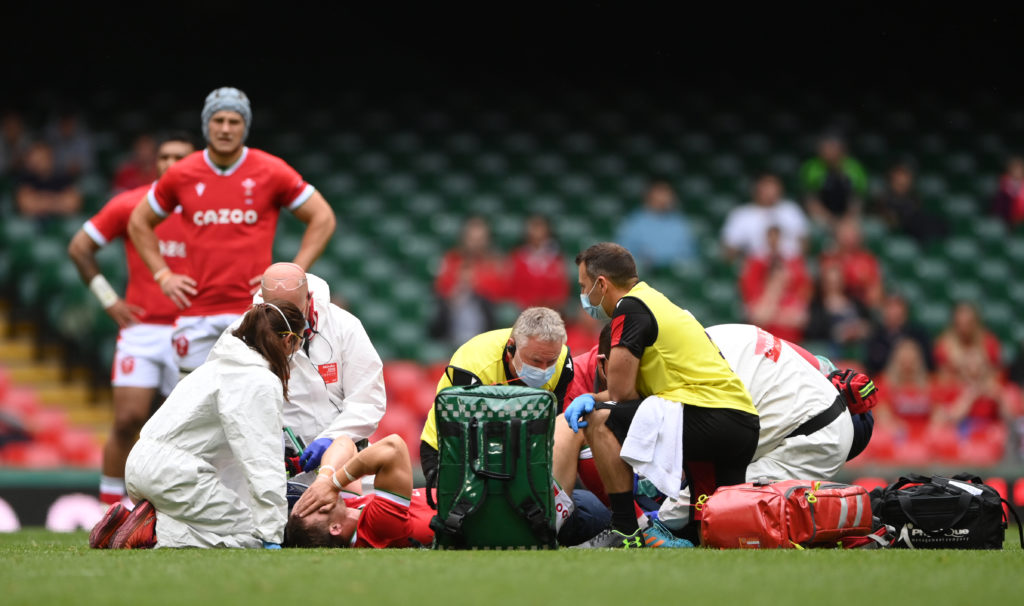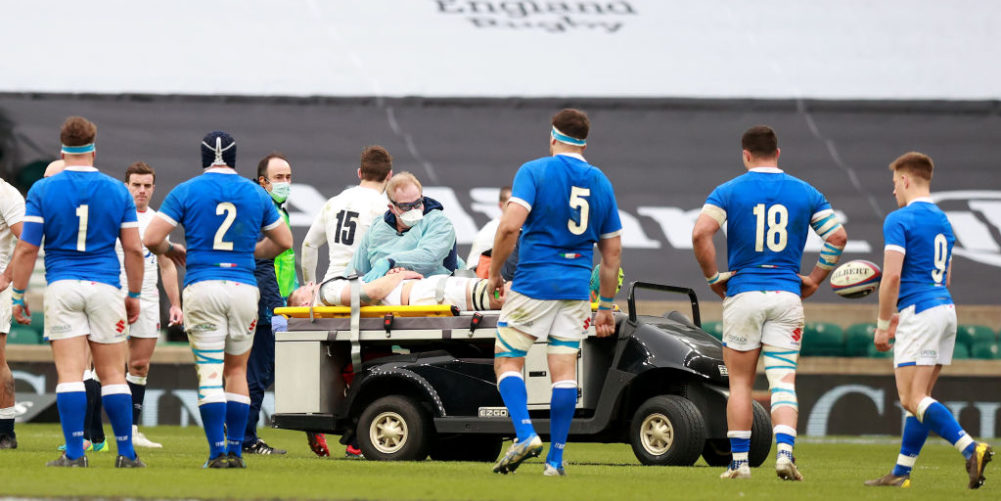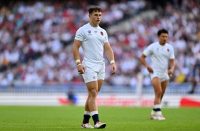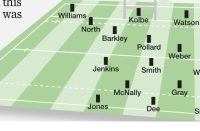By BEN REDWOOD
THE SIX NATIONS have so far been dominated by two things – coronavirus and injuries. England and Wales are missing key figures in their squads. Both captains (Alun Wyn-Jones and Owen Farrell) are out of action for a while – with the Wales skipper potentially making a comeback before the end of the tournament.
With Scotland and Wales announcing full stadiums, attention has turned towards the actual rugby. However, a week away from the opening weekend – injuries are beginning to dominate the news headlines.
Yesterday, Eddie Jones announced that Owen Farrell would play no part in the Six Nations due to an ankle injury sustained in Saracens training. Frustratingly for England, Farrell had just returned from a two month lay off due to an injury picked up against Australia in November – before he rolled the other ankle.
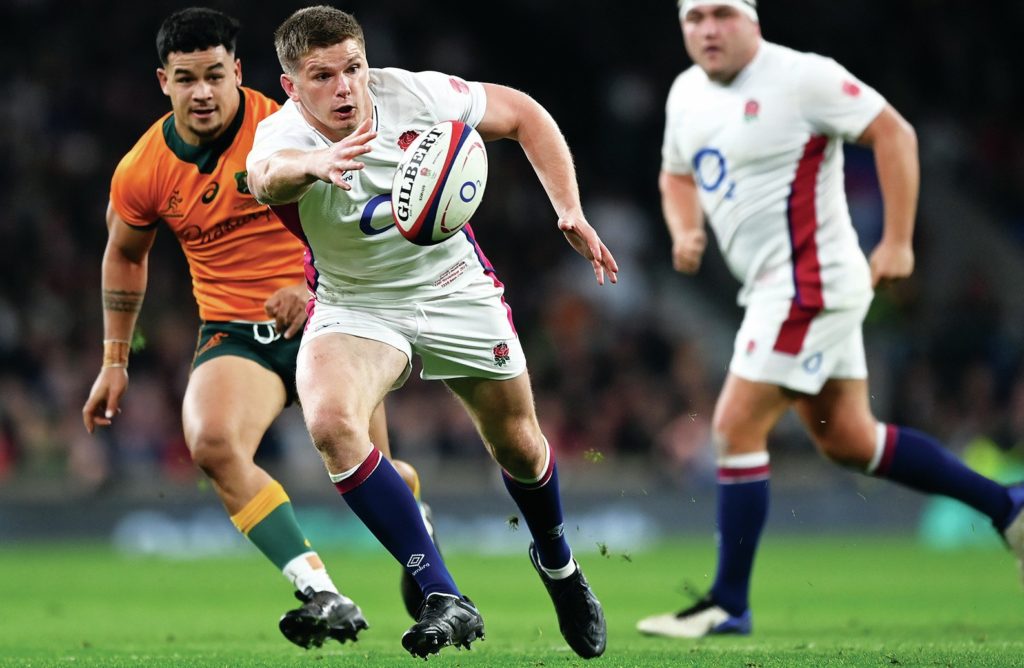
Wales have also been decimated by injuries, missing over 700 caps for the start of their Six Nations defence.
Why are there so many injuries?
Is this rotten-luck or a by-product of the pandemic? The latter is more likely.
Rugby is an incomparable sport to everything else. The physical nature of the game means injuries are always going to happen. Add to that, better concussion protocols means more players are rightly out injured with head injuries.
Other sports have seen a spike in injuries to professional players.
Whether that be a lack of rest in top-level football, where players are now expected to play 80 games in a year with a 38-game season, European football, two domestic cups and international football to top it off. Or, in cricket – where internationals are jetted around the world in a crammed schedule to live in bio-security bubbles where they are locked in hotels.
A key issue, is that the pandemic has forced less rest between seasons as fixtures have been crammed in to complete competitions.
The lack of rest at the end of a season and time for a conditioned pre-season could well be a huge factor. Players need to rest and re-condition their bodies.
Rest at the end of the season is important for a players mental and physical well-being – especially in rugby. With this time shortened and matches becoming more frequent, injuries are a negative by-product of this.
Rugby is battling the financial implications of the pandemic. The need to balance the books means more games are being played. The players are being forgotten.
Last summer, the Premiership finished on 26th June 2021 with Harlequins victory over Exeter Chiefs in the Premiership final.
A gruelling Lions tour followed a crammed domestic and international season. A month and half gruelling tour resulted in a 2-1 loss to the Springboks. By the final Test match on 7th August 2021, the Lions players looked shot – resulting in a narrow loss and series defeat.
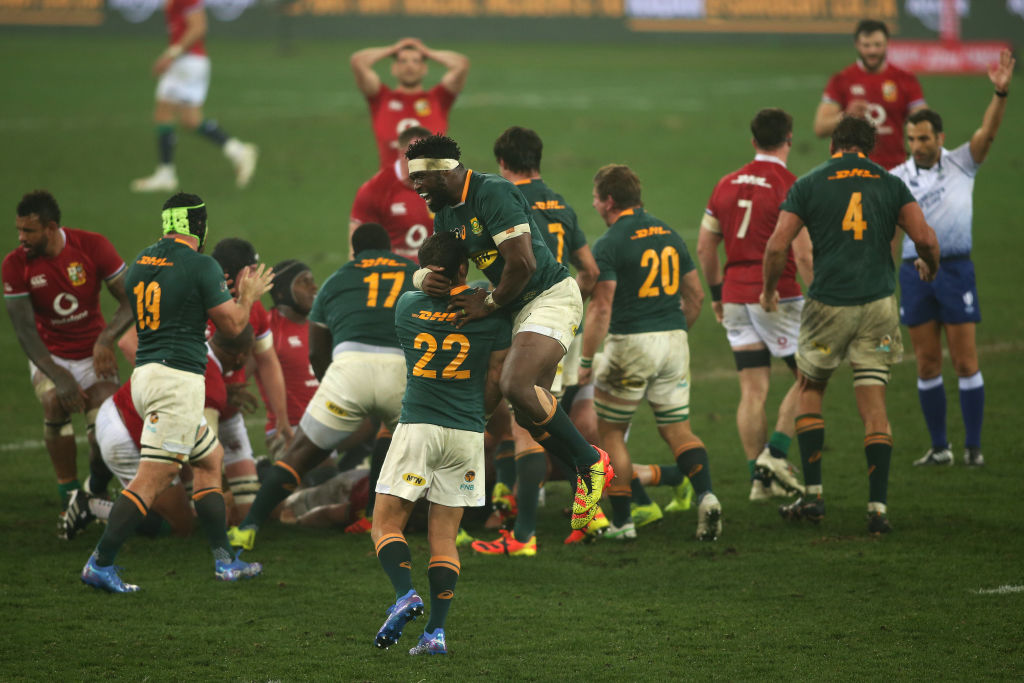
Four of England’s absentees were a core part of the Lions squad (Farrell, Lawes, Watson and Hill). Of Wales’ key absentees, Alun Wyn-Jones, Taulupe Faletau, Ken Owens and Josh Navidi all toured South Africa with the Lions. That’s eight of the touring party missing the Six Nations – albeit, Courtney Lawes may well be fit for the first game following concussion. Coincidence? Perhaps. The Lions tour and quick turnaround into the 2021/22 season is a huge reason reason for their absence.
Which of England’s players are injured?
Farrell however, is one of many of England’s key players that are missing or doubtful for the Six Nations opener at Murrayfield next week (5th November).
As well as Farrell, Jones admitted yesterday that Jonny May is unlikely to play a part in the tournament due to a knee injury. The winger has been an England stalwart during Eddie Jones’ tenure and will be sorely missed by England.
Of those that are currently in the squad, the two biggest doubts are Joe Marler and Courtney Lawes.
Joe Marler tested positive for coronavirus for the second time in three months, meaning a mandatory seven-day isolation period. He will return in time for the training the week before the match. However, returning to action following Covid-19 can be tough – especially for a prop. Jones hopes he can return to training next week.
Courtney Lawes is in line to replace Farrell as England captain. However, Lawes has been sidelined from training this week following concussion Northampton Saints‘ match with Ulster on January 16th. He is likely to fit for the visit to Scotland. However, with concussion protocals rightly being so strict – Lawes’ availability is not a certainty.
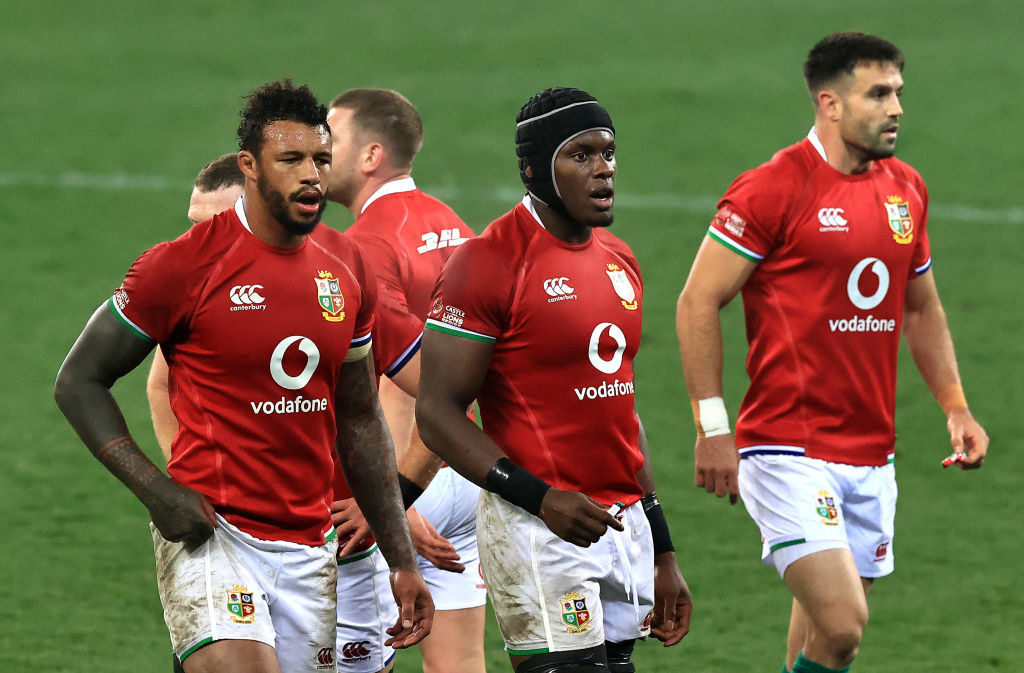
Jonny Hill was rated by Jones as “touch and go” for Murrayfield after damaging his foot playing for Exeter. His protective boot was removed this week and after showing his best Test form yet in the autumn, he has emerged as an important figure in the tight five.
Sam Underhill was left out of Eddie Jones’ squad following a nasty concussion in Bath’s Boxing Day defeat to Gloucester. Last week, Jones outlined: “Sam is not quite ready”.
Underhill’s return lasted a mere 15 minutes, as a nasty blow to the head resulted in his substitution. Two bad concussions in a short period of time are worrying signs for Underhill. It seems this injury may rule him out for a number of weeks, making an appearance in the Six Nations unlikely.
Manu Tuilagi is yet to make his comeback following a torn hamstring he suffered when scoring his try in November’s victory over South Africa. He is back in training and will return imminently. However, Eddie Jones will want to allow him to build up his match fitness before selecting him at international level. With England’s difficulties in midfield, if Tuilagi can get fit – Jones may well turn to him later in the tournament.
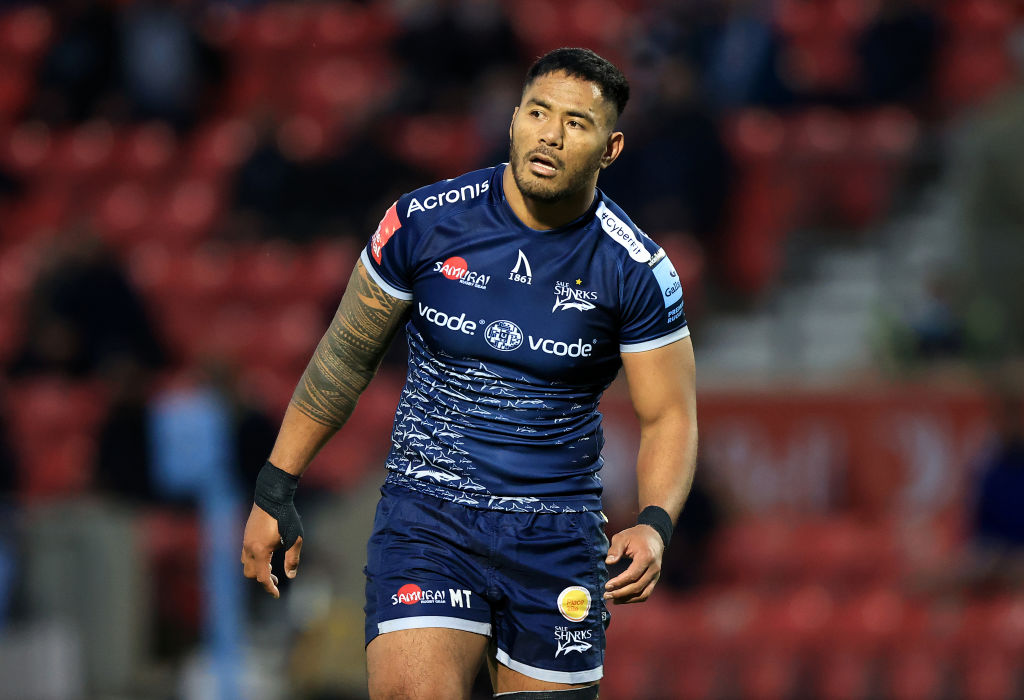
Long-term absentee Anthony Watson is yet to return to action following a ruptured ACL. The injury in October meant he would have missed the Autumn internationals and Six Nations. He is hoping to return to club action for Bath before the end of the season. With a ruptured ACL, it will take time for Watson to rediscover his best form. When fit, Watson will be a definite starter in England’s best XV.
Professional sport needs to adapt
Sport – not just rugby, needs to learn the lessons from long injury lists. Elite players are playing too much sport, with little time for rest. The reduction of the salary cap in The Premiership means wages will ultimately go down. With no change in schedules in sight, it makes a mockery of the players. Players are the game, we need them on the pitch and firing on all cylinders.
What will happen if this continues? The answer is simple. More games which will bring more injuries to the biggest names – which will be hugely detrimental to the game as a whole.
